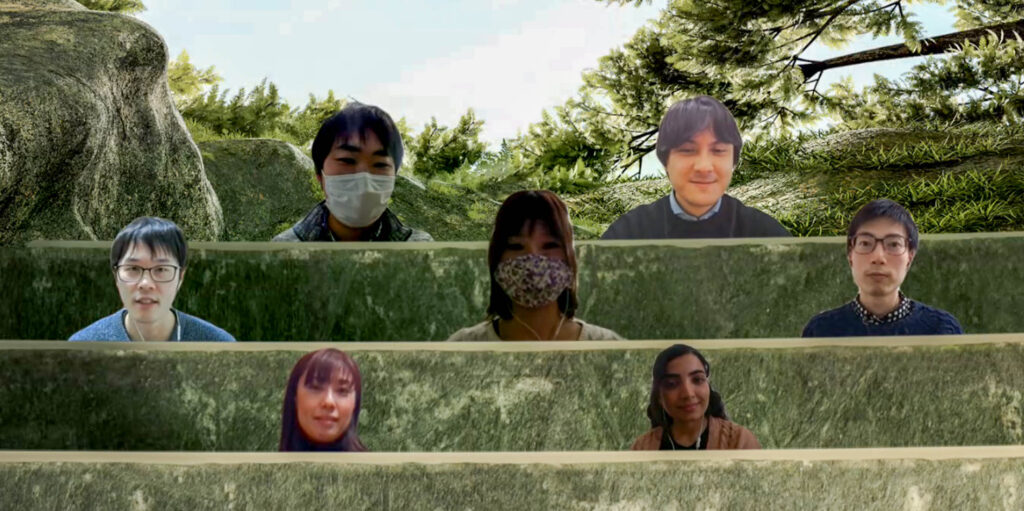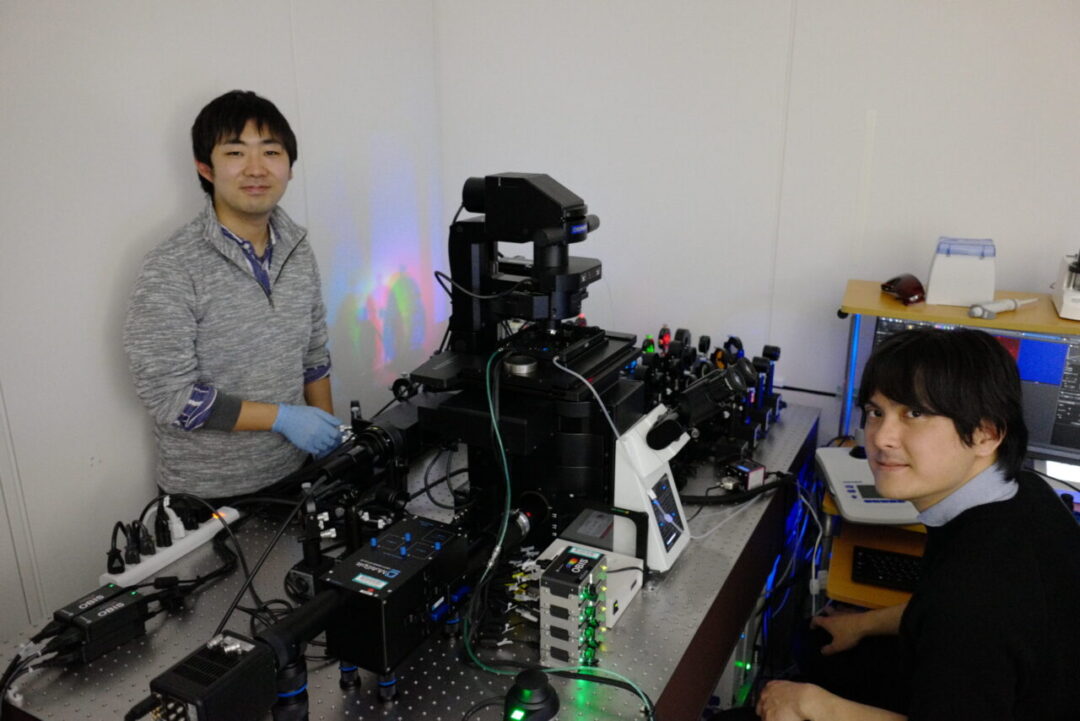Nonequilibrium Physics of Living Matter RIKEN Hakubi Research Team
The RIKEN Hakubi Fellows program offers outstanding and talented early-career scientists the opportunity to lead an independent team to pursue creative and ambitious research with the potential for high scientific and societal impact. This time, we introduce the Nonequilibrium Physics of Living Matter RIKEN Hakubi Research Team led by Hakubi Team leader Kyogo Kawaguchi (right in top image) who was appointed in 2018 in the first round of recruitment for the program. Trained as a nonequilibrium physicist but with an interest in biological concepts, Kawaguchi applies mathematics and physics approaches to understand the fundamental principles governing living systems.
What are the main research themes of the laboratory?
We are investigating the unique phenomena that arise when cells assemble together (collective cell behavior) and the molecular mechanisms involved in cell differentiation from a physics-based perspective.
How many people are in the laboratory?
There are a total of six people—two technical staff with a biology background, three research scientists with a physics background, and the principal investigator.
What is remarkably unique about the laboratory?
We do not have a particular technology to boast about, but perhaps one unique aspect of the lab is that we do (at least try to do) everything within our reach, regardless of whether it is experimental or theoretical. We do wet lab experiments involving chromatin reconstitution, single molecule microscopy, and long time-lapse imaging of cultured cells. In the same lab but in the dry area, we do machine learning, numerical simulation-based research, and pure theoretical physics.
How has the COVID-19 pandemic affected the research activities of the laboratory?
We did experience some difficulties in performing experimental work. There were also delays in obtaining specific parts from vendors that we needed to set up our microscope system. But we overcame these obstacles by shifting our focus during this time to more desk work-based tasks such as theoretical research and analyses of data we had already collected.

